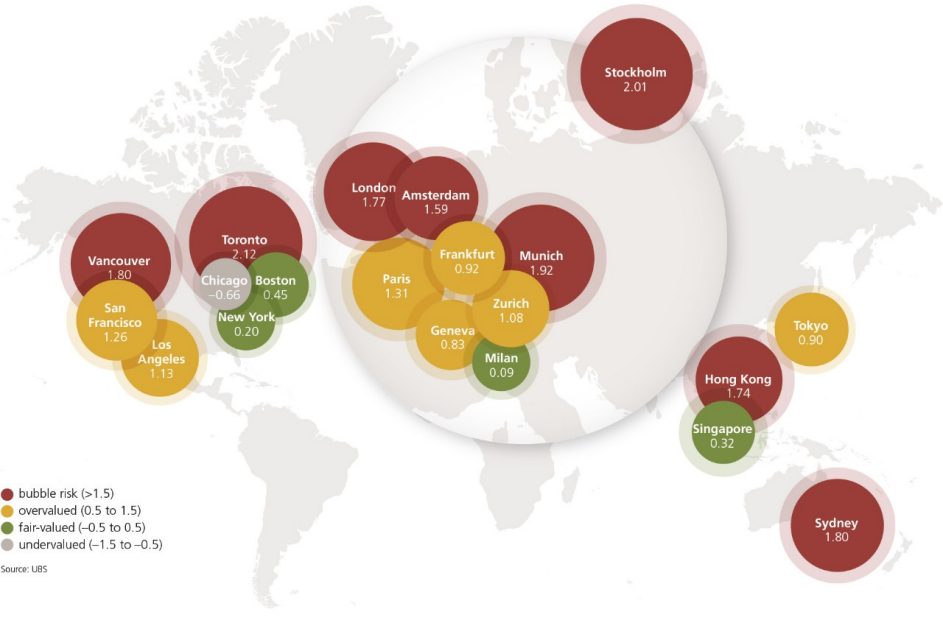Increasing tension in the real estate markets of economically strongest cities of the world
2017-09-29
Swiss bank UBS has reported about the rising risk of housing bubble in some major cities across the world. According to the bank’s index (Global Real Estate Bubble Index), the bubble risk has grown in Toronto, Stockholm, Munich, Vancouver, Sydney, London and Hong Kong. In contrast, housing is fairly valued in Milan, New York, Singapore and Boston.
The attractiveness of economically strongest cities across the world remains high and increases the bubble risk in the real estate market. “Great interest in housing both from foreign investors and local market participants, positive expectations about future housing prices, and historically low mortgage costs rapidly increase housing prices, which in some cases have already reached or are in excess of the price levels that were a decade ago. The demand for buy-to-let property and slow supply of new housing significantly increase the gap between the big cities and the remaining regions of the countries and at the same time reduce the possibilities of the residents of major cities to buy residential property,” Raimondas Reginis, senior market analyst of Ober-Haus, said.
Meanwhile in Lithuania, similar trends have been observed since 2010: a growing gap between the housing prices in Vilnius and other regions of the country, demand for buy-to-let property, record low mortgage interest rates, and largely moderate or positive expectations about future housing prices. “These factors determine housing price growth in the country, particularly in the capital city. However, our most active regions are protected against greater price changes by sufficient supply of new housing and the real implementation of macroprudential policy. Although over the past seven years housing prices in Vilnius increased by 25% on average, even faster wage growth keeps the housing affordability levels record high,” Mr Reginis said. According to Ober-Haus, today an inhabitant of Vilnius can purchase 5.9 sqm in a medium class apartment for his average net annual salary. This indicator is nearly twice as high as that in 2006–2007, since both nominal and real prices are far behind the price level recorded 10 years ago.
“However, with faster growth of housing prices the Bank of Lithuania may introduce stricter lending criteria for mortgages in an attempt to cool the housing market. The rise of “frozen” interest rates could also be effective in naturally controlling both the Lithuanian real estate market and the markets of the regions at risk of a bubble,” Mr Reginis said.

